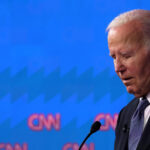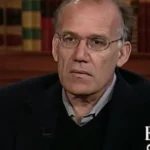The riots and murder in Charlottesville are anything but old news. Vegas may not be laying odds, but my bet is the fallout will continue for days, weeks, maybe months. Instigated primarily by a group of white supremacists, many of whom, including the murderer, were from out of state, the alt-rightists claimed they were there to unite the right—or so said Richard Spencer, a man most frequently cited in connection with the march. If that was what he and his cohorts really hoped to accomplish, they have failed miserably. Condemnation among Republican lawmakers in Washington, D.
If that was what he and his cohorts really hoped to accomplish, they have failed miserably. Condemnation among Republican lawmakers in Washington, D. C., and the numerous Republican-controlled state houses has been universal, and the major organs of conservative opinion such as National Review and The Weekly Standard have wasted no time in voicing their disgust.
But the fact is, very few people today follow politics as, just to pick an example, New Yorkers did in 1787 when they perused what we now call The Federalist Papers, and fewer are so ardent in their principles as to subscribe to the conservative National Review or the liberal New Republic. When a crisis arises, as it did in Charlottesville, the general population looks to the president to make a statement to, so to speak, clear the thickening fog. And where will people go to hear the sage words that will define the crisis and inspire unity? Alas, it is not the television or radio; it’s not even the Internet with its myriad news sites. No, our “leaders”—an unfortunate label, especially if it’s true—up to the oval office itself now take to their Twitter accounts to “Tweet” their declarations, assurances, and celebrations of one thing or another.
“Birdbrain” remains an expression of contumely, and I can think of no better word to describe someone who believes the “Tweet” is the ideal medium for making a statement of any substance, political or otherwise. That our president apparently regards Twitter as the medium of media—a preference obvious before he got the Republican nomination—is alarming. Let a vain, weak, unprincipled man sign into Twitter, and don’t be surprised to find a flurry of silly, empty remarks cluttering the Twittershpere. Make him president, and you can expect such remarks—the guano of public commentary—to become matters of public controversy.
Trump’s Tweets after Charlottesville, primarily his “many sides” remark, have called for correction after correction. It may be true that politically motivated riots seldom occur when only one side is marching; and, indeed, in Charlottesville two sides, both clearly intent on mischief, clashed with the expected results. But there are times when the chief executive, particularly one who has been cheered by a noxious fringe group, should disavow and condemn that group when it oversteps clear rules of civic morality. Trump failed to do this, period.
True as it may be that “many sides” played a part in Virginia, Trump should have known that anything less than a rejection of the white supremacists would be interpreted as a calculated refusal to alienate a segment, however small, of his supporters. That reaction was, as he is so often inclined to Tweet, “sad.”
That said, Trump is not the only person addicted to Tweeting. Our ex-president Mr. Barrack Obama got in the act this weekend. No shock here: Obama is an inveterate Tweeter, doing his “fair share” to trivialize presidential oratory. On this occasion he really surpassed himself, Tweeting the Tweet that was heard around the world. “Obama’s Charlottesville Tweet is the most liked in Twitter history,” declared Hunter Schwarz at CNN, and he was joined by ABC, NBC, and numerous other news outlets.
I’ll admit President Trump’s Tweets set a very low bar, but what Obama wrote proved, on analysis, hardly worthy such universal awe: “No one is born hating another person because of the color of his skin or his background or his religion . . .” Some in the media caught the quotation marks, noting the words were actually Nelson Mandela’s, which they duly reported. Obama himself, quotation marks aside, failed to make proper attribution, and the less savvy among his audience (judging from the comments, no small number) assumed, as has been their wont, that the words of wisdom were not only original to the ex-Tweeter-in-chief but possible from him alone. The inevitable “comments” were risible. One will suffice: “Barrack is total class! THIS IS HOW TO RESPOND!” Yes, if you’re Nelson Mandela.
Nelson Mandela has his fans worldwide, but I’m not one of them. Let those who love him declare him a giant as they will; to me, he’s the former president of an organization with Marxist ties and a man who spent years in prison for murder. Setting that aside, the quotation is sophomoric. Of course, no one has ever been born hating anyone specifically for anything. True, say the sages of current wisdom; you learn to hate those who differ from you. Even some very smart ring changes on this theme—Jay Nordlinger, for example, a senior editor of National Review and a wonderful music critic at The New Criterion. He loves to quote the title of Rogers and Hammerstein’s song from the musical South Pacific, “You’ve Got To Be Carefully Taught,” which suggests in its lyrics something consequent to what Obama/Mandela claimed.
I beg to disagree. You don’t have to be carefully taught anything of the kind. An unfortunate feature of our fallen world is that we’re rather inclined to be suspicious of people who are obviously different from us, no tutelage needed. And there’s no getting around it: color is one of the most obvious things about people. Anyone who is white just may find someone who isn’t strange—and vice versa. Why else has our government spent billions of dollars forcing people to “get together” as the sixties songs used to preach (and Trump Tweeted on Saturday). Why has Hollywood produced film after film with the not-so-hidden agenda of making us feel guilty about racism? Why is there Affirmative Action, desegregation, forced busing? If “you’ve got to be carefully taught” anything, it’s that color, background, and religion
Affirmative Action, desegregation, forced busing? If “you’ve got to be carefully taught” anything, it’s that color, background, and religion doesn’t matter. Of course, sometimes they do because they have contributed so much to who we are as individuals and groups, but living together civilly in spite of our differences is the real lesson—a hard one. I’m glad most of us have learned it, just as I’m glad that the moronic alt-right is so small that most in Charlottesville came from out of state.
But in spite of all the money that’s been poured into making us love one another, the only way to get real results is by giving people a common loyalty bigger than. For St. Paul it took nothing less than the love of Christ Himself to make people forget they were Greeks or Jews. Even with that, unity remained a thorny business.
That is chiefly a religious matter. Politically, beyond the racism and infatuation with authoritarianism, tendencies of both the alt-right and the left in Charlottesville, the lamentable thing about the aftermath is the missing statesmanship. We needed to hear inspiring words from wise and humble men that reminded us of a common faith, of our political heritage, and of the hard-won battles against ancient propensities held in check ultimately by virtues not of this world.
Instead we got the tweeting of two small men, pampered souls who feel a one paltry Tweeted sentence settles an issue once and for all. It would be hard to find a more depressing fact in American politics, unless it’s the number of people who think such Tweets are the pith and marrow of political wisdom.














